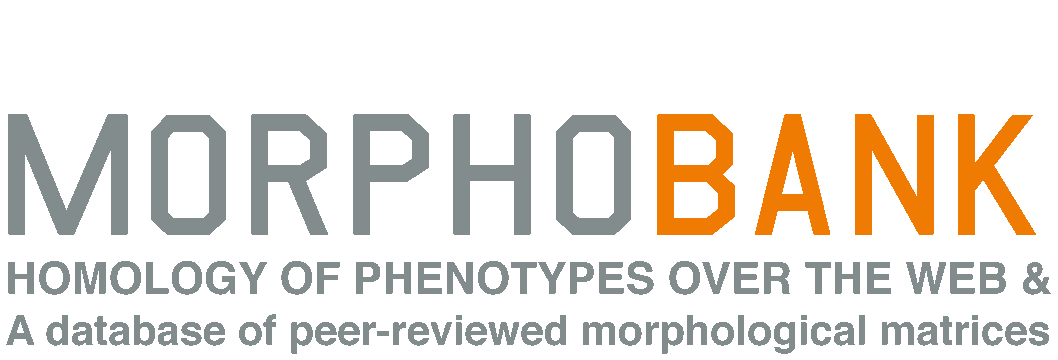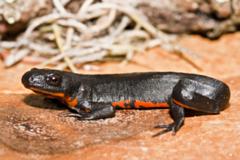Project 536: K. L. Krysko, J. P. Burgess, M. R. Rochford, C. R. Gillette, D. Cueva, K. M. Enge, L. A. Somma, J. L. Stabile, D. C. Smith, J. A. Wasilewski, G. N. Kieckhefer III, M. C. Granatosky, S. V. Nielsen. 2011. Verified non-indigenous amphibians and reptiles in Florida through 2010: Outlining the invasion process and identifying invasion pathways and stages. Zootaxa. (3028):1–64.
Abstract
We follow a biological invasion model that consists of a series of five consecutive obligatory stages, concluding with stages 4a and 5 (i.e., widespread = invasive species). The State of Florida is infamous for having the most introduced (stages 2–5) amphibians and reptiles in the United States. However, there is disagreement regarding their numbers as well as identification in some cases. Unverified claims of species being introduced (stage 2), or established (stages 3–5) without evidence (i.e., a voucher specimen or photograph) are prevalent in the literature. It is crucial to provide data on all known non-indigenous herpetofaunal species via vouchers to help keep numbers of species consistent, accurately identify species, document when and where a particular species is found, and identify the invasion stage and pathway of each species. Herein, we use vouchers to confirm interceptions and introductions of all known non-indigenous amphibians and reptiles in Florida through 2010, provide a list of these species along with their invasion pathways and ecological status (i.e., invasion stage), and provide a species account for each newly confirmed species. We include species that were previously reported in the literature but lacking an associated voucher and provide greater details on previously reported species and those species whose invasion stage has been upgraded to established (stages 3–5). Based on field work since 1992, along with examination of museum records and literature, we confirm three intercepted and 137 introduced amphibian and reptile taxa in Florida. Of these, 56 are established (i.e., reproducing; stages 3–5), including three frogs, four turtles, one crocodilian, 43 lizards, and five snakes. Of 149 total independent introduction pathways (i.e., including a different pathway one time only for each taxon) for the 140 total non-indigenous taxa above, two (1.34%) are related to the biological control pathway, four (2.68%) to the zoo pathway, 18 (12.08%) to the cargo pathway, and 125 (83.89%) to the pet trade pathway.Florida now ranks as having the largest number of established non-indigenous herpetofaunal species in the entire world. Despite current state laws that make it illegal to release any non-indigenous animal in Florida without first obtaining a permit from the Florida Fish and Wildlife Conservation Commission, enforcement is difficult, and we are unaware of any person ever being prosecuted for the establishment of a non-indigenous animal species in Florida. Because current state and federal laws have not been effective in curtailing the ever-increasing number of illegal introductions, laws need to be modified and made enforceable. At the very least, those responsible for introductions should be held accountable for compensation to clean up (= extermination) of those species for which they are responsible. Lastly, we strongly support the creation of an Early Detection and Rapid Response program to quickly identify newly found introduced species for eradication attempts. This paper will also serve as a baseline to document future introductions.
Read the article »
Project DOI: 10.7934/P536, http://dx.doi.org/10.7934/P536
| This project contains |
|---|
Download Project SDD File |
Currently Viewing:
MorphoBank Project 536
MorphoBank Project 536
- Creation Date:
23 June 2011 - Publication Date:
18 September 2011 - Media downloads: 5

Authors' Institutions ![]()
- Duke University
- Florida International University
- University of Florida
- University of Mississippi
- Florida State Collection of Arthropods
- Florida Department of Environmental Protection
- Florida Fish and Wildlife Conservation Commission
- Central Florida Zoological Park
- Zoo Miami
Members
| member name | taxa |
specimens |
media |
| Kenneth Krysko Project Administrator | 84 | 84 | 84 |
| Maureen Admin Full membership | 0 | 0 | 0 |
| MorphoBank Curator Full membership | 0 | 0 | 0 |
| Louis Somma Full membership | 0 | 0 | 0 |
Project has no matrices defined.
Project downloads 
| type | number of downloads | Individual items downloaded (where applicable) |
| Total downloads from project | 362 | |
| Media downloads | 5 | M88500 (1 download); M88575 (1 download); M88651 (1 download); M88626 (2 downloads); |
| Document downloads | 2 | Copyright Statement for Media (2 downloads); |
| Project downloads | 355 |

